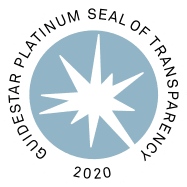This year has become a turning point for more than 6,000 favela residents, the poorest of the poor living in Brazilian slums.
Thanks to the Favelas Project – our Brazilian team’s joint effort to help people in the most disadvantaged communities acquire official titles and regularize their property ownership – many favela residents now see hope for the first time in their lives opening up before their eyes.
The lack of property rights has long been a critical issue in Brazil.
Since the Land Law, enacted in the 19th century, the Brazilian state has claimed ownership of all unowned land. Freed slaves who had nowhere to go and no resources to draw on were forced to build squatter communities on empty land but had no way to secure title to that land. They could not buy it, and there was no provision for squatter’s rights in Brazilian law.
A frightening 100 million people lacking such official titles today cannot become full-fledged members of society. They cannot legally sell their property or get a bank loan to start businesses and have no guarantees that the government won’t come and evict them from their homes, as frequently happens when the government needs to “clean up” an area in preparation for a World Cup Soccer match, or any other commercial development.
The Favelas Project
They are frozen in their current state, unable to move up and create a better life for themselves and their families.
To help favela residents get ownership of their properties and have more control over their lives, our SFL Brazil team started a land tenure regularization project. They partnered with several non-governmental organizations to facilitate the process.
The first one was with Instituto Atlântico, a non-profit organization that found a loophole in Brazilian law that would force the state to recognize the property rights of the favela residents. They then created a legal strategy that could bring regularization to many other communities.
The second partnership was with Atlas Network, which helped our students produce a documentary diving deep into the nature of the problems that ravage these communities, telling the history of how the Favelas came to be and showing the courageous entrepreneurial spirit of favela residents.
The video, which aimed to raise awareness about the problem among different social groups, turned out to be a huge success–within the first week of release, it went viral and gained over 225,000 views.
Why do we defend property rights in Favelas?
It was crucial to convey the idea that even those who do not struggle with the absence of a title are still affected by problems rooted in the lack of property rights in the most disadvantaged areas.
Many urban economists believe that granting title deeds in favelas would help residents break the cycle of poverty by providing incentives for investment in physical improvements and fostering small businesses.
This will also lead to less crime since drug dealers usually occupy territories with insecure land tenure. With the ability to start businesses, favela residents would not have to travel a long way just to use the necessary services absent in their areas. This will help avoid overcrowding and long wait time in more upscale neighborhoods.
The SFL Local Coordinator who Is Granting Hundreds of Brazilians Property Rights
After watching the first documentary, our Brazilian student volunteer Vitor Graçano partnered with his hometown government in Barroso, Minas Gerais, and under the Favelas Project, helped 180 families regularize their homes.
“When delivering property titles, we deliver dreams,” says Vitor, “I saw Students For Liberty Brazil opening the debate on the recognition of housing in the favelas, and it inspired me to bring it to practice in my city.”
Since 2021, The Favelas Project has been featured in 43 different media outlets in 50 articles, interviews, and videos.
In an article about one group that received their property documents, Boletim da Liberdade said this:
One hundred and eighty properties had their documentation formalized by the local land tenure regularization program in Barroso, Minas Gerais. The action, which was put on hold by the municipality, was only resumed thanks to the initiative of Students For Liberty Brasil, which has been debating the right to property in favelas around the country.
Today, Vitor is helping people in several neighboring cities to legalize their property. Thanks to his dedication, more than 800 families received title deeds in the favelas, and many more will get them soon.
Our partnership with an entrepreneur, startup investor, and professor at Link School of Business Alex Vilela resulted in a creation of a civil association for the residents of the Nova Esperança (New Hope) community, making it easier for them to receive funds and get legal representation to fight for their property rights and their dignity.
“I partnered in this great project,” says Alex, “because it brings valuable content to the people who need it most, the people from the favelas. It stimulates entrepreneurship and individual freedom. I believe with all my heart that this fantastic project has to be replicated and scaled in a way that reaches even more areas.”
The Next Steps of the Favelas Project
To reach as many people as possible, our student volunteers come to different neighborhoods to show the documentary and guide the favela residents through the process of legalization of their property. The Favelas Project team has created a step-by-step guide helping navigate through this complex issue.
One of our biggest challenges is building trust and credibility among the favela residents. “The locals are scared. A lot of people come to their homes to talk about the regularization of their property ownership, then take their money and disappear into thin air,” says Vinicius Albano, the Favelas Project campaign manager.
He believes that the next step will be creating a website with a Q&A section that will help people all around the country find a way to safely and reliably receive a title deed. The ultimate goal is to open a non-profit organization with full-time staff focused on helping the most disadvantaged communities acquire official titles and regularize their property ownership.
What the Favelas Project team wants the most is to build trust and credibility, and help as many favela residents as possible.
The Favela Project will keep improving the lives and dignity of the favela residents all around Brazil. We are currently in the process of helping more communities legally acquire their property rights, and showing those in poverty they have hope and agency and can achieve freedom and seek their own happiness.

















